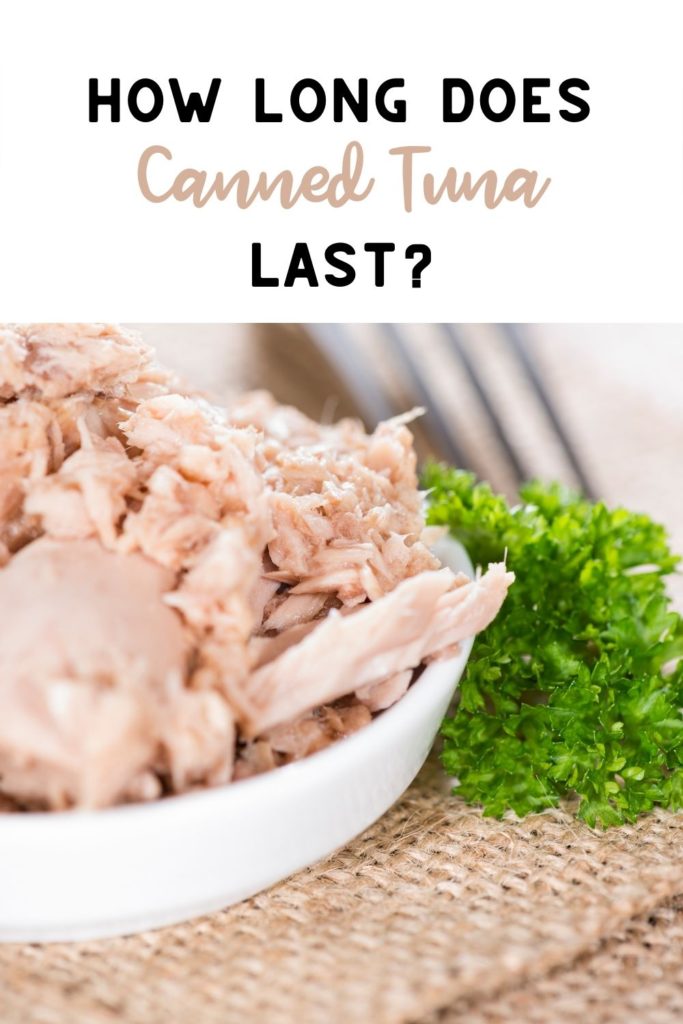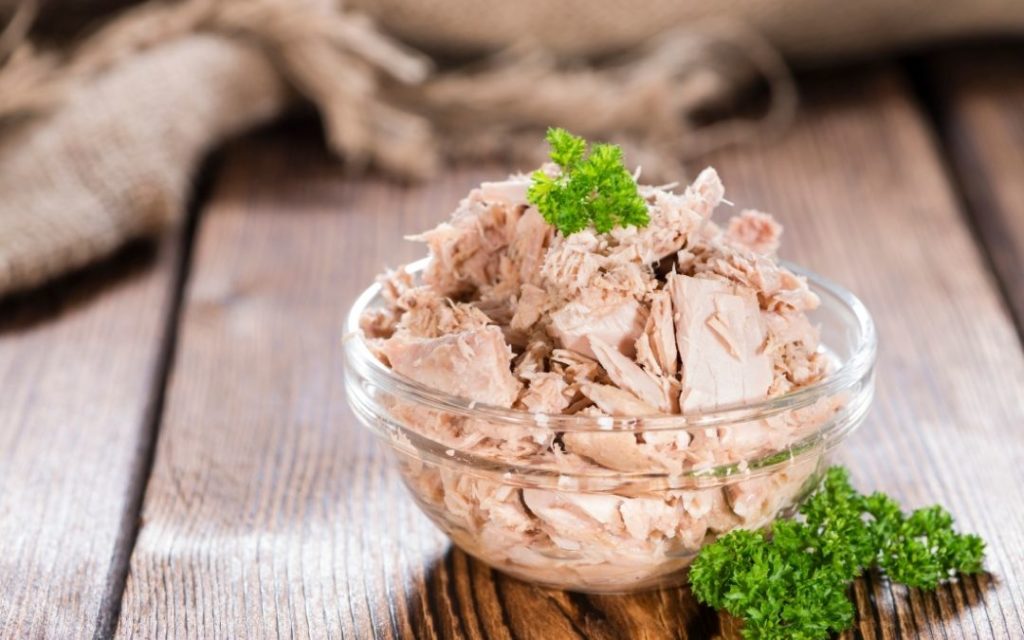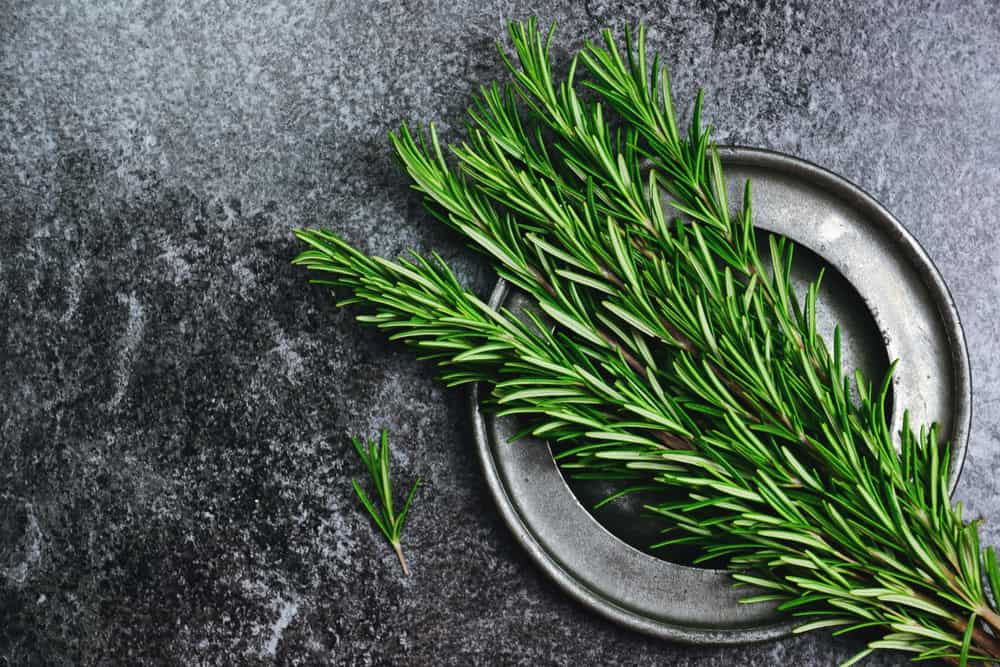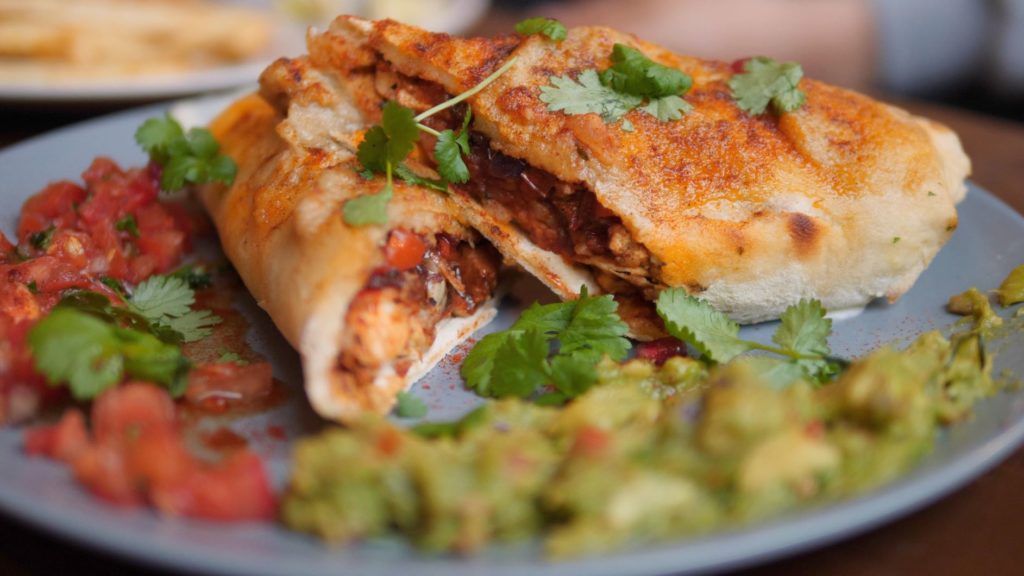There are many reasons why most people choose to stock canned foods in their pantries or fridge. First, canned foods can come in handy when you’re stuck at home and don’t feel like going out to purchase some groceries. Or, it could be that you have a meal plan you have to follow—so you just have to stock up some canned foods in the house.
Either way, you have your reasons for prioritizing canned foods and stocking them in your house. Tuna is among the most popular canned foods—packed with protein, healthy fats, and vitamins. Moreover, tuna is inexpensive and can last longer than other starchy foods, making it a staple food in many kitchens.
While the canned goods come with their expiry dates written on their wrappers, you cannot rely on the dates alone to gauge their safety. Furthermore, other factors can determine the shelf-life of your tuna.
So how can you know whether your tuna is still safe for consumption? Fortunately, there are many ways to determine if your tuna has gone bad or not. Besides checking the expiry dates, check if the can is leaking, see if your tuna has decolorized, smell to check for foul odors, and taste it (which should be your last option).
This post may contain affiliate links. Read my disclosure policy here.
How Long Does Canned Tuna Last?
As long as the can is intact, canned tuna can stay safe for a while after the expiration date on the label. However, once you open it, it should last between three to five days. Remember to store your unopened canned tuna in a cool and dry place, as these conditions will keep them safe for consumption.
Most people are curious whether their tuna is still safe for consumption even after it’s past the “Use By” date. The primary purpose of the “Use By” date is to indicate the period in which the packaged food will remain at its ultimate quality. Once the “Use By” date period has elapsed, the canned food will start to deteriorate in quality.
Therefore, your canned tuna is still edible after the specified “Use By” date period. Even so, it’s better to eat the tuna before that to avoid any unprecedented risks associated with food poisoning.
Tuna is available in cans and pouches, but both approaches use a similar processing method. The main difference between canned and pouch tuna is the latter has less liquid. When it comes to durability, both canned and pouch tuna have roughly the same shelf life when properly stored.
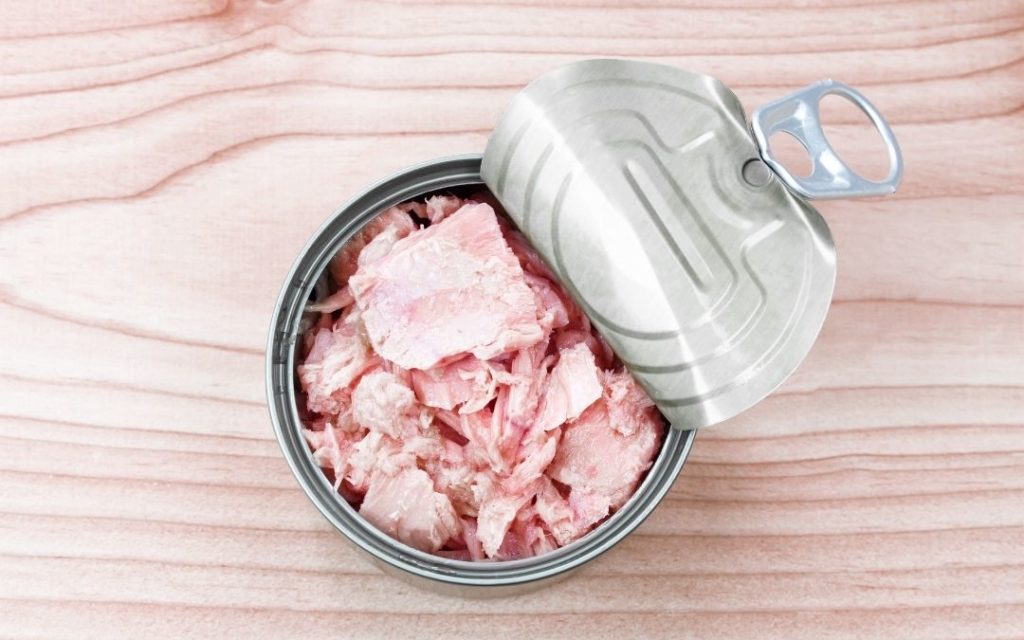
How Do I Store Canned Tuna
Keep your unopened canned tuna at room temperature (below 20℃) and away from heat sources. When it comes to storage, canned goods don’t require much—simply place them in a pantry or your kitchen cabinet. You won’t need a refrigerator or anything else because canned foods are safe while still in the cans.
But keep in mind that storing canned foods in temperatures above 90°F (32°C) or freezing them is not a good idea. Both are capable of jeopardizing the seals ([FSI]), which can result in your food going bad sooner than expected.
Clean the cans before opening them to prevent bacteria and other pathogens from contaminating your food. This is especially critical if you will store your tuna for a few days.
Once you’ve opened your tuna can, be sure to keep it in the refrigerator. Most experts recommend placing your tuna in a plastic bag or container before transferring it to the fridge, where it will stay fresh for one to two days.
How Do I Tell If Tuna Has Gone Bad?
1. Check the Dates
In most cases, canned foods can be consumed after the “best-by date” has passed. This date is only set to guarantee that quality is maintained over time. However, the overall quality of your tuna will significantly depreciate after you’ve stored it for a while.
Eating your tuna after the expiration date is safe, but you should not overlook it. Therefore, it’s recommended that you mark the date you bought your tuna as a good reminder of how long it’s been on your cupboard shelves and how soon you should consume it when still at its prime.
2. Check if the Can is Leaking
It is not common for cans to leak, but at times it does happen. Don’t consume your tuna if the can is leaking in any way.
A leaking can signify that something went wrong during the preservation process, and the can is no longer protecting your food. Regardless of the date stamp or other reasons, do not eat your canned tuna if the can is leaking.
Usually, your canned food is pressure sealed, making them ideal for long-term storage. If something is leaking, the can’s contents cannot be assumed to be preserved adequately, as the micro-organisms in the external environment can get access to the content.
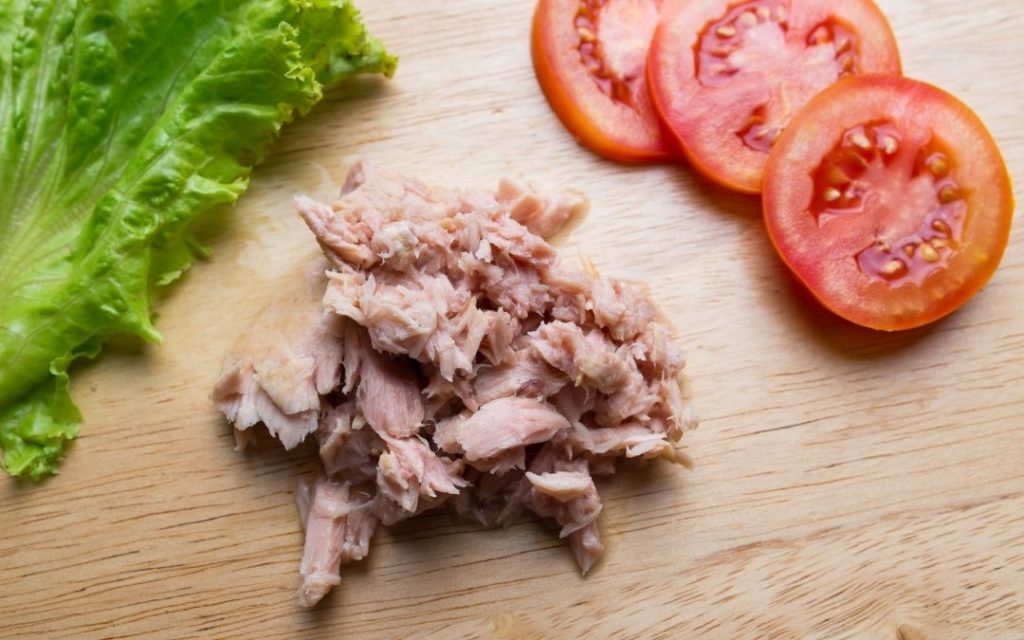
3. Check its Smell
Canned food doesn’t necessarily smell the greatest when you open the can’s seals. That’s because the content in that container has been sealed with oil or water to keep it fresh for an extended period.
On the other hand, tuna is a type of fish; thus, it comes with a fishy smell. If you’ve often eaten canned tuna, you’re definitely familiar with the smell it gives off when you open the can.
Getting a good whiff of your tuna is an excellent way to determine whether it’s poor. When a tuna goes bad, it has an unpleasant smell—perhaps slightly acidic. This odor is strong, and you’ll notice it immediately you pop the can seal open.
If the stench is caustic, put it out and wash your hands to ensure you didn’t get any of the spoiled filth on your hands.
4. Check if its Green, Black, or Brown
Besides the stench, awful taste, and expiry dates, decolorization is also one of the common indicators that food has gone bad. Typically, tuna that have gone bad have dark brown stark, some of which may appear black. Additionally, your tuna can also turn green and, therefore, not safe for consumption.
5. Did the Can Just Explode?
Always be keen when opening your canned food for the first time. For example, when opening your canned food, closely study if the can will open by exploding—and if that is the case, then there could be something wrong with the canned food inside.
If your can explodes while opening it, you’ll hear an explosion bang or your food may just come spilling out swiftly—either way, you should throw away your tuna. The explosion indicates that something went wrong during the canning process.
6. Canned Corrosion
It’s better to be cautious than sorry when it comes to rust or corrosion on the can. Corrosion can lead to tiny holes on the surface of your can, which are always tiny and therefore cannot be seen easily.
Depending on the can’s material, eating tuna from a corroded can expose you to severe health complications, such as lung damage, vomiting, diarrhea, nausea, skin rashes, increased heart rate or blood pressure, and whatnot. Don’t take chances if your canned tuna can shows the slightest sign of corrosion.
7. Check if the Can is Damaged
Don’t get me wrong—it’s not like eating food from a dented can is necessarily harmful. Typically, grocery shops reduce the prices of damaged canned goods to sell them fast.
A dent in the can, particularly at the top, could indicate that the can’s internal pressure has been released without your knowledge. Bacteria often build upon the food item in such a situation, resulting in salmonella and other nasty micro-organisms. Therefore, it’s recommended to toast out your tuna if you notice a dent on the can’s lid.
8. Give it a Taste
Tasting to confirm whether your tuna has gone bad or not should be your last resort if all other methods fail. If you take a bite and the tuna doesn’t taste alright or, as usual, it would help you toasted it out. Spoiled canned foods can be dangerous, and it’s important to throw them away if your instincts tell feels they aren’t safe for consumption.
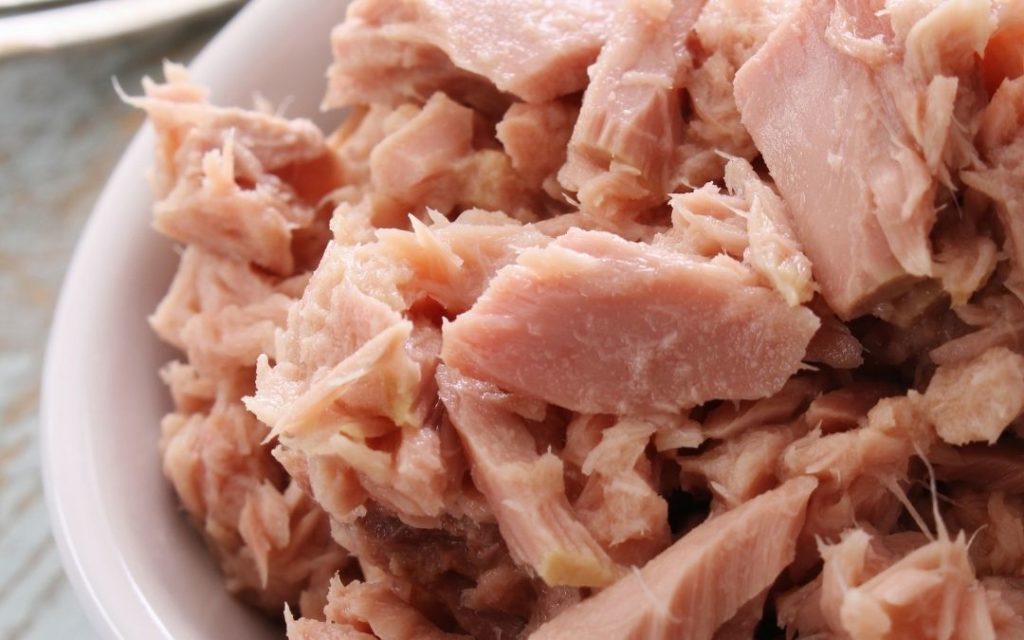
Related Questions
1. How Long Does Canned Tuna Last Unopened?
Canned tuna can last for about three to five years. If you store your unopened canned tuna properly, it can go for up to five years. However, after opening the seal, you should put it in a plastic bag and transfer it to the refrigerator, where it shouldn’t take more than two days before you eat it.
2. Can I Eat Canned Tuna After The Expiration Date?
Yes, you can still eat your canned tuna after the specified expiry date. But you need to be sure that it remains unopened and you store it in the proper conditions—room temperature and away from sources of heat. The ‘best by’ date only guarantees that the quality of the tuna is still intact, after which the rates like the taste, color start to depreciate, but it is still edible.
3. Why Is Canned Tuna Good For So Long?
Generally, canned foods tend to have a long shelf life because they are carefully processed to last long in our food stores. Tuna comes in cans or pouches; either way, the preservation process is similar and lasts long.
